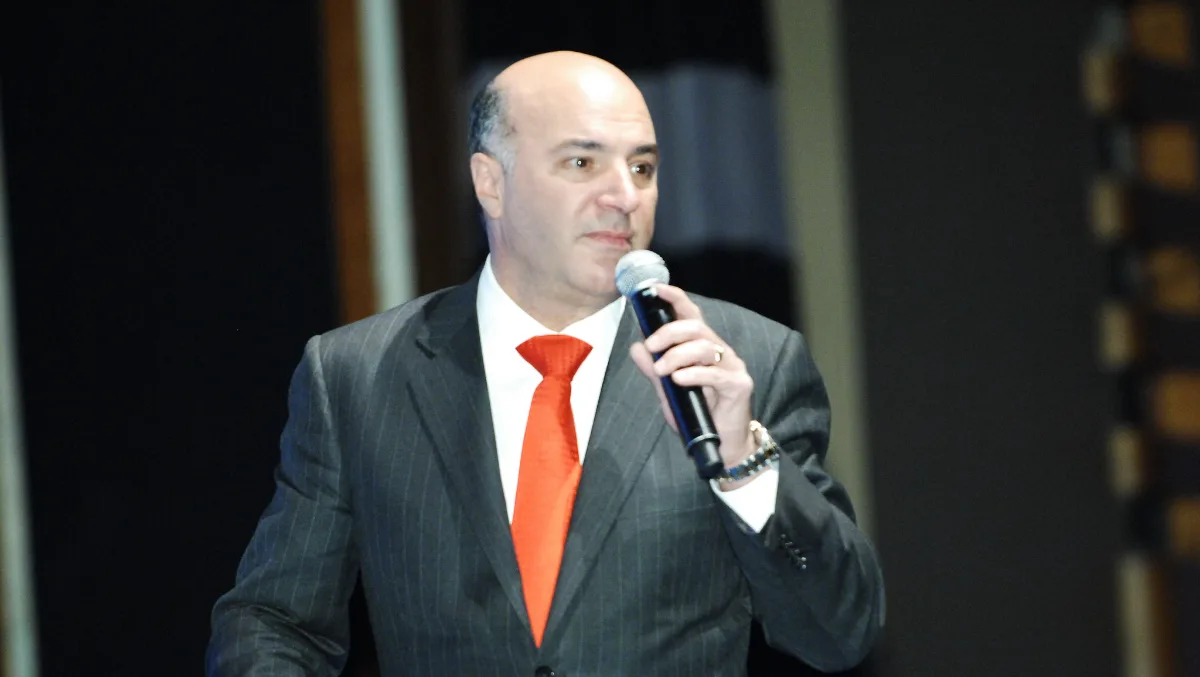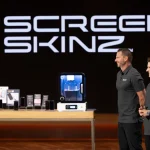
Stocks have always been a staple for a big investor and Kevin is no exception; which in turn begs the question of what are the highest yielding Kevin O’Leary stocks?
Kevin O’Leary might just be the “biggest shark” in the tank. His biting remarks and no-nonsense attitude have earned him a reputation as the group’s resident bully. Given how careful he is with money, it makes you wonder how he puts his own cash to work when he can’t just snag a royalty deal.
The Highest-Yielding Kevin O’Leary Stocks
This is how Kevin O’Leary multiplies his wealth when he is not making snarky remarks on the show or investing in other ventures, such as record-breaking game cards.
Comcast Corp.
Comcast is a global player in media, entertainment, and communications. The company divides its operations into two main segments. The first is Connectivity & Platforms, which covers residential and business connectivity services. The second is Content & Experiences, which spans media networks, film studios, and theme parks.
In the second quarter of 2025, revenue was $30.3 billion, up 2.1% from a year ago. Operating income fell 9.7% to $6 billion.
Adjusted net income was $4.7 billion, down 1.7%. Adjusted earnings per share climbed 3.3% to $1.25, while adjusted EBITDA inched up 1.1% to $10.3 billion. Free cash flow came in at $4.5 billion.
In the same quarter, Connectivity & Platforms generated $20.4 billion in revenue, a slight decline of 0.4%. Adjusted EBITDA was almost unchanged at $8.5 billion. The unit saw broadband subscribers fall by 226,000, a sharper drop compared with the 120,000 lost a year earlier.
The Content & Experiences segment reported $10.6 billion in revenue, up 5.6%. The boost mainly came from Theme Parks, thanks in part to the buzz around Epic Universe in Orlando and solid results from the Studios side.
The segment’s adjusted EBITDA rose 3.6% to $2 billion. On top of that, Comcast returned value to shareholders by repurchasing $1.7 billion worth of stock at an average of $34.48 per share.
Looking at the year so far, revenue edged up 0.8% to $60.2 billion. Operating income slipped 6.4% to $11.7 billion. Adjusted net income fell 1.4% to $8.8 billion, while adjusted earnings per share grew 4% to $2.34. Adjusted EBITDA improved 1.5% to $19.8 billion, and free cash flow reached $9.9 billion.
Comcast Corp Yield: 3.9%
Kimberly-Clark Corp
Kimberly-Clark is a consumer products company with a presence in 175 countries. It focuses on everyday disposable items such as diapers, tissues, and paper towels.
Its business is organized into three segments. Personal Care includes brands like Huggies, Pull-Ups, Kotex, Depend, and Poise. Consumer Tissue covers Kleenex, Scott, Cottonelle, and Viva. The company also runs a professional segment that serves businesses.
Their second-quarter numbers for 2025 came in weaker than expected. Adjusted earnings per share were $1.63, missing estimates by four cents. Revenue declined 1.7% from last year to $4.16 billion, coming in about $470 million below forecasts.
The drop in sales was linked to divestitures, business exits, and currency pressure. Nonetheless, organic sales grew 3.9%. This marked the strongest volume growth the company has seen in five years.
Adjusted gross margin dropped 180 basis points from last year to 36.9% of revenue. The decline reflected pricing moves combined with higher costs, including planned investments in product value and tariffs.
Kimberly-Clark Corp Yield: 3.9%
Kenvue Inc.
Kenvue became an independent company after its separation from Johnson & Johnson. Its areas of operation include products for pain relief, cough and cold, allergies, and smoking cessation.
Skin Health and Beauty features lines for face, body, hair, and sun care. Essential Health focuses on women’s health, oral care, wound care, and baby care. The most famous products in its line are Tylenol, Listerine, Band-Aid, Neutrogena, Nicorette, and Zyrtec.
Kenvue reported its second-quarter 2025 results on August 7. Revenue was at $3.84 billion, down 4% from last year and about $10 million short of forecasts.
Adjusted earnings per share were $0.29, down from $0.32 a year ago. However, the silver lining was that they were still a literal penny above analyst expectations.
Organic sales fell 4.2% in the quarter, partly offset by a small 0.3% boost from currency exchange. Volume declined 3.3%, and weaker pricing reduced results by another 0.9%.
To break it down, organic revenue dropped 5.9% in Self Care, 3.7% in Skin Health, and 2.4% in Beauty. Gross margin narrowed by 20 basis points to 58.9%.
Kenvue Inc. Yield: 4.0%
Paccar Inc.
PACCAR makes trucks of all sizes under three well-known names: Kenworth, Peterbilt, and DAF. Kenworth has a strong presence in North America and Australia, Peterbilt is a staple in the U.S. and Canada, and DAF serves markets across Europe and Brazil.
The company also provides financial services, IT solutions, and distributes parts for its trucks. PACCAR has a market capitalization of $49 billion and generated $34 billion in revenue in 2024.
PACCAR boosted its quarterly dividend by 10% to $0.33 per share in December 2024. In July, the Q2 results came out. The revenue was at $7.51 billion, a decline from $8.77 billion in Q2 2024.
PACCAR’s parts division generated $1.72 billion in revenue in the second quarter. The financial services segment also posted $123 million in pretax income.
Net income came to $724 million ($1.37 per share), down from $1.37 per share ($2.13 per share). The company delivered 39,300 vehicles worldwide, compared with 48,400 a year earlier.
PACCAR spent $227 million on capital projects and $113 million on research and development in the same quarter.
Paccar Inc. Yield: 4.4%
T. Rowe Price Group
T. Rowe Price Group is a leading publicly traded asset manager. It offers mutual funds and sub-advisory services. The company also manages separate accounts for individuals, institutions, retirement plans, and financial intermediaries.
As of June 30, 2025, T. Rowe Price managed nearly $1.6 trillion in assets. They closed at $1.6 trillion in assets by the end of June 2025. Earlier in February, the firm raised its quarterly dividend to $1.27. This marked the 39th consecutive year of raising its payout.
On August 1st, 2025, T. Rowe Price announced second-quarter results for the period ending June 30th, 2025. Revenue declined 0.6% to $1.72 billion and missed estimates by $30 million for the quarter. Adjusted earnings-per-share of $2.24 compared unfavorably to $2.26 in the prior year, but this was $0.11 more than anticipated.
Assets under management stood at $1.59 trillion. That was a 3.6% increase from last year but a 1.9% decline from the previous quarter. Market gains of $125.4 billion were offset by $14.9 billion in outflows. Expenses rose to $1.23 billion, up 6.5% year-over-year and 6.6% quarter-over-quarter.
T. Rowe Price Group Yield: 4.8%
Target Corporation
Target has grown into a nationwide retailer with roughly 1,850 stores since its inception from 1902. These locations sell a mix of groceries and general merchandise while also doubling as hubs that support the company’s online operations.
On May 21, 2025, Target released its first-quarter results. They came in below expectations to say the least. Profit was $1.30 per share, well below what analysts expected. Sales were $23.8 billion, about 3% lower than last year and short of forecasts by more than half a billion dollars.
Merchandise sales also slipped by 3.1%. On the bright side, other revenue sources jumped 13.5%, giving the results a small lift.
Target did see digital sales climb 4.7% in the quarter, powered by a 35% surge in same-day delivery. Drive Up was the standout contributor to that growth. Still, the overall comparable sales were down by 3.8%. Growth was seen in only 15 out of 35 categories.
Target Corporation Yield: 4.9%
General Mills
General Mills is a global packaged foods company with a portfolio of more than 100 brands sold in over 100 countries. The company also has one of the longest dividend records in the industry, maintaining an uninterrupted payout for 125 years.
General Mills finalized the $2.1 billion cash sale of its North American yogurt division on June 30, 2025. The funds will go toward buying back shares. Since the unit represented about 8% of last year’s revenue, management expects earnings per share to be reduced by roughly 3% in fiscal 2026.
The company reported results for the fourth quarter of 2025 on June 25. Net and organic sales declined 3% from the same period a year earlier, pressured by weaker demand and pricing. It was one of the sharpest quarterly drops the company has seen in the past five years.
General Mills Yield: 5.0%
Verizon Communications
Verizon Communications was established in June 2000 after the merger of Bell Atlantic and GTE. It has grown into one of the nation’s biggest wireless providers.
Wireless services generate about 75% of their revenue, while broadband and cable make up the rest. Verizon’s network reaches roughly 300 million people and covers 98% of the country. Broadband also added 300,000 customers, extending Verizon’s streak of at least that many net additions to 12 straight quarters.
The company’s fixed wireless customer base also grew by upwards of 5.1 million. Their estimated target is to be around 8 to 9 million by 2028. The business revenue slipped by 0.3% (to $7.3 billion), as growth in wireless services was offset by continued declines in wireline.
Wireless retail postpaid net additions were 65,000 for the quarter. Free cash flow for the first half of 2025 reached $8.8 billion, compared with $8.5 billion a year earlier.
Verizon Communications Yield: 6.2%
Altria Group
Altria sells cigarettes, smokeless tobacco, cigars, and e-cigarettes under well-known brands like Marlboro, Skoal, and Copenhagen. The company is living through a shift as U.S. smoking rates decline. Ergo, they are investing in smoke-free products to meet changing consumer habits.
Altria also holds a 35% stake in e-cigarette company JUUL and owns 45% of Canadian cannabis producer Cronos Group.
The second-quarter reports showed earnings per share at $1.44. This was a green flag as it beat the figure analysts expected ($1.38) and was also a rise from 8.3% a year earlier.
Revenue was $6.1 billion, which is above forecasts but slightly lower than last year. Gross profit stood at $3.9 billion, with operating income of $3.2 billion.
Net income fell to $2.4 billion from $3.8 billion, mainly due to a goodwill impairment in the e-vapor business. Domestic cigarette volumes dropped by 10%, but Marlboro helped the smokeable products segment deliver strong operating income.
Altria Group Yield: 6.3%
United Parcel Service
United Parcel Service is a household name that has been in the business since 1906. The company moves packages and freight, manages supply chains, and provides related services like insurance and financing.
The operations are divided between domestic package delivery in the U.S., international shipping, and supply chain and freight solutions.
Lately, UPS has been growing its international operations through strategic acquisitions. In July 2024, it announced the purchase of a Mexican express delivery company called Estafeta. They completed the acquisition of a specialized healthcare logistics provider in Germany called Frigo-Trans in January 2025.
UPS reported its second-quarter 2025 results on July 29, covering the period through June 30. The company amassed $21.2 billion in revenue, down 2.7% from last year.
U.S. Domestic revenue fell 0.8%, while international revenue grew 2.6%. For context, the domestic sales make up 67% of sales.
Supply Chain Solutions dropped 18%, and the adjusted earnings per share were $1.55, which is slightly below the projected figures.
The company plans to cut down 20,000 jobs in 2025 and has already closed 74 facilities by the end of June. These moves are expected to generate $3.5 billion in cost savings.
United Parcel Service Yield: 7.7%
Kevin O’Leary’s Playbook for Wealth
Kevin O’Leary’s choices show that his hard-edged persona masks a very practical investment style. He isn’t betting on wild trends or chasing quick wins. Our beloved Mr.Wonderful instead sticks with established names that deliver steady results, even if the numbers aren’t flashy enough superficially.
For all his sharp words, his portfolio shows that wealth grows best when backed by discipline and balance.
In spite of all that, Kevin does shake things up in his portfolio, like dropping $12.9 million on a Jordan-Kobe card. Apparently, his idea of a “safe bet” now comes with a signature and a basketball legend.




















